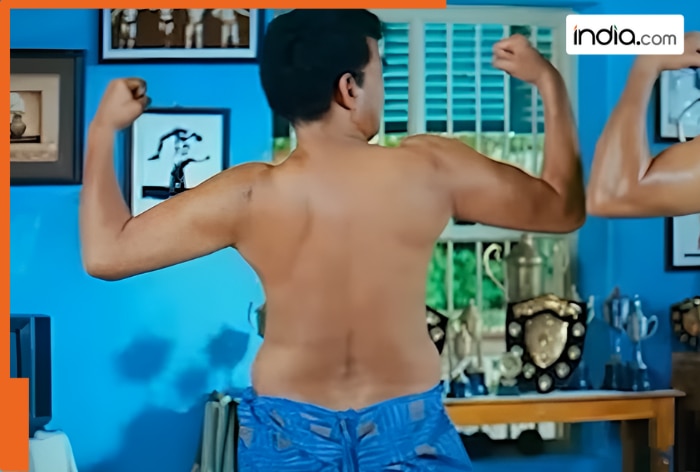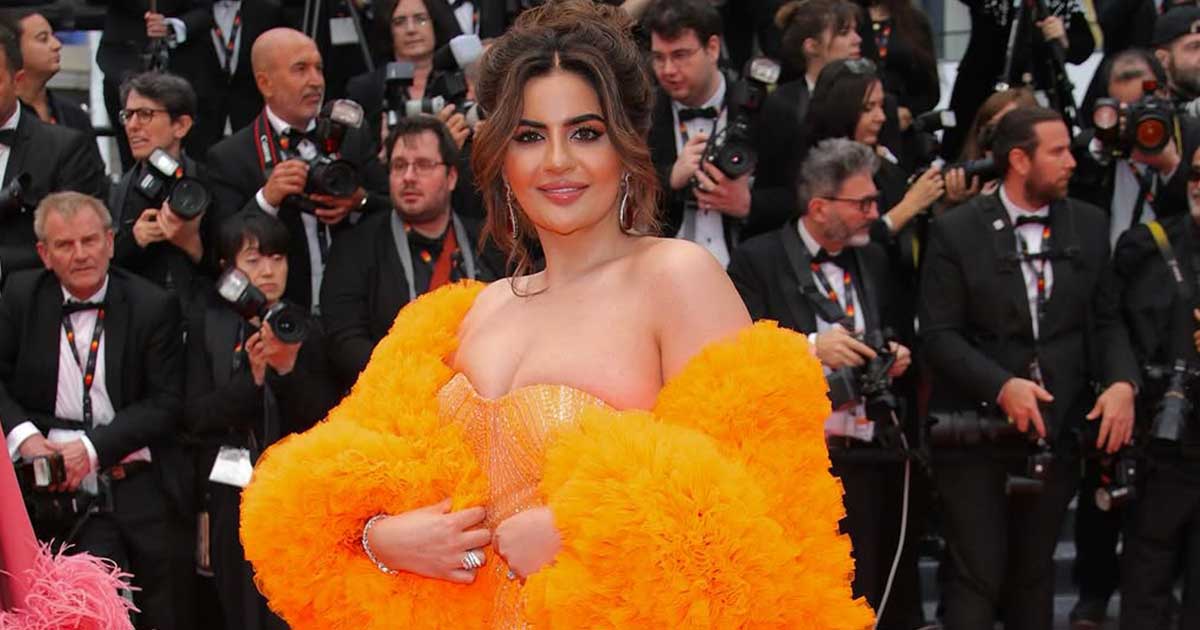A good joke doesn’t just fall out of a coconut tree. It exists in the context of all in which it lives and what came before it. And so it’s worth considering the mood on July 15th, the day that Donald Trump, ahead in the polls against a diminished Joe Biden, announced J. D. Vance as his running mate. Many folks were eager for Vance to make a false step and were in need of a laugh. So it was that the X user @rickrudescalves found an especially receptive audience for a plainly false, but squint-and-it-could-be-true tweet:
Days later, Biden had dropped out of the race, Kamala was “brat,” Vance had fornicated with a couch, and, for very online Democrats, anything seemed suddenly possible.
Well, at least the tweet is still funny. There’s the icky specificity of the latex glove, the deadpan “can’t say for sure” qualification, and the desperate, lonely horniness that the whole scene evokes. But what really sells the joke—what made it go cosmically viral, and likely what prompted the Associated Press to issue and then retract a story debunking it—is the studious use of the fake citation. Look again and you’ll notice the real zinger: not that Vance would include such a story in a memoir but that he would take some part of three pages to tell it.
Much about the past year has, similarly, been too funny to be true—or, alas, too true to be funny. But there were a few laughs along the way. Here are some highlights.
The Final Tennis Match in “Challengers”
No one told the filmmaker Luca Guadagnino that tennis doesn’t really work like that. In the finale of the glorious romp “Challengers,” a pair of professional players, the estranged friends Art and Patrick (Mike Faist and Josh O’Connor), face off in a frenzied rally, backed by a thumping electronica soundtrack and presided over grandly by their romantic and sporting svengali, Tashi (a gleaming Zendaya), watching from the stands. The back-and-forth eventually settles into a ludicrous series of volleys, shot from a dizzying array of perspectives. Real pros would resolve a point far more quickly, but this is tennis as modern erotic opera, and the scene ends with one of the most ecstatic visual jokes of the year: one man leaping across the net and landing—sweaty, smiling, spent—in the waiting arms of the other. To quote one of the film’s satisfying lines, “Come on!”
Conan Likes It Hot
Sean Evans’s “Hot Ones,” a Web show in which famous interviewees answer podcast-y questions while eating chicken wings doused in an escalating series of hot sauces, has become a regular stop on the celebrity promotional circuit. In April, Conan O’Brien turned the show into a master class in his own brand of full-send comedy. During the conversation, the former late-night host rubs sauce all over his face—and on his nipples, through his shirt—pours reckless amounts onto his wings, and later drinks it straight from the bottle. “I’m erect for the first time in fifteen years,” he screams, his senses awakened. “Call the wife!” Later, with his face covered in milk, hot sauce, and spittle, O’Brien tells viewers to look for comedy everywhere, high and low and in between. Don’t be a snob, he cautions, then adds, “These aren’t the rantings of someone who’s had some bad chemicals and overdid it to be funny and relevant to people who are at least fifty years younger than him.” On the latter part, mission accomplished.
Researching Spiders in the Amazon
The funniest line from a movie trailer in recent memory—“He was in the Amazon with my mom when she was researching spiders just before she died”—got a second life in February when the associated movie, “Madame Web,” came out and viewers discovered that the so-bad-it’s-good dialogue got left on the cutting-room floor. The lesson: sometimes a movie should lean into its ludicrousness and go all-out “Snakes on a Plane.”
Dakota Johnson, the actress who delivered the ill-fated line, showed herself to be a tireless good sport during the online aftermath. Johnson has long fulfilled her publicity obligations in the spirit of a performance artist, whether by injecting a sense of danger into the normally low-stakes celebrity-interview form, as when she shamed Ellen DeGeneres for not showing up to her birthday party. This year, Johnson again rose above her mediocre movie material, mostly shrugging off the “Madame Web” mess during the press tour and, later, mocking her own icy persona and nepo-baby status on “Saturday Night Live.”
Rap’s Springtime Beef
The battle between Kendrick Lamar and Drake unfolded via searing diss tracks that prompted close reading, with Lamar landing what was considered a knockout blow, and a top candidate for song of the summer. “Nice to know that rap could still create a culture-wide main event of this kind, full of narratives and lore and cathartic plot points,” The New Yorker’s Vinson Cunningham wrote, “but the flagrant misogyny on display dampened the mood.” Still, the exchange offered a few comedic bright spots, especially on Lamar’s “Euphoria,” where he boasted about his records and, in a neatly nested dig, accused Drake of purchasing some cosmetic enhancements: “Yeah, my first one like my last one / it’s a classic, you don’t have one / let your core audience stomach that / didn’t tell ’em where you get your abs from.”
Raygun Breaks the Olympics
Charlie Chaplin, Lucille Ball, Molly Shannon, that little girl who burst into the room while her father was being interviewed on TV about Korea: words never do full justice to the greatest of physical comedians. That was also true of Rachael Gunn, performing under the nom de breakdancing Raygun while representing Australia at the Summer Olympics. Her eccentric moves and—let’s say unique—pacing prompted howls on social media, drawing comparisons between the athlete and Yogi Bear, or Elaine Benes.
Perhaps inevitably, the episode generated a bit of bad feeling: some viewers claimed that Raygun must be trolling or otherwise disrespecting her competitors; she has since said that she felt devastated by the backlash. But I propose that anger in either direction was misguided. It requires some online digging to find the full video of Gunn’s Olympic routine, but it’s worth the effort. Cue it up and feel the smile break across your face as Raygun struts onto the stage, decked out in a green windsuit, then marvel at her mad demonstration of human possibility, which produced perhaps the funniest photograph of the year, featuring Raygun in full T. rex mode as the judges look on, each bearing a slightly different expression of puzzlement.
The Return of Jiminy Glick
At a buoyant seventy-four, Martin Short is keeping the art of the one-liner going strong. This summer, as a guest host on “Jimmy Kimmel Live!,” he performed in character as Jiminy Glick, a pretentious idiot whose specialty is insensitive, ill-informed celebrity interviews. In a chat with Bill Hader, Glick breaks the former “S.N.L.” star again and again—it’s clear that Hader (a careful impressionist and student of comedy history) is delighted to be taking questions from sketch-comedy royalty. Short gets a big laugh with a non sequitur near the end, when he says, of Willie Nelson, “He looks like the first of the Mohicans.”
Leave Moo Deng Alone!
“I’m your favorite hippo’s favorite hippo,” Bowen Yang proclaimed on “Saturday Night Live,” dressed up as the viral animal sensation Moo Deng. A baby pygmy hippo from Thailand, Moo Deng became famous this year for, as Yang puts it, “having a slippery body that bounces.” As performed by Yang, Moo Deng is exhausted, fed up with being treated like a creature in a zoo, and no longer willing to be parasocial besties with her fans. If these sound like the summertime complaints of the pop star Chappell Roan, that’s the point. The scene repeats the joke too many times at the end, but the joy of watching Yang get sprayed in the face by a hose makes up for a bit of comic overkill.
Glen Powell Plays the Hits
The biggest joke in Richard Linklater’s feel-good murder movie “Hit Man,” released in the spring, may be that someone who looks, sounds, and behaves like Glen Powell could be mistaken for anything but a movie star. For viewers who can suspend disbelief and accept the premise of Powell’s character, a bland philosophy professor turned undercover operative, the rewards are plentiful. Powell, who co-wrote the film, particularly shines in a montage that shows him impersonating a variety of hit-man archetypes in order to ensnare people plotting murder-for-hire schemes—“not everyone fantasized about the same fixer,” he observes. Powell inhabits a handful of tough guys and embodies a few more idiosyncratic tropes—a long-haired Russian, a Patrick Bateman power-suit type, and a character seemingly inspired by Tilda Swinton—to convince his marks. But Powell’s funniest scene comes when he plays a figure closer to himself and reveals his own dark capacity for creative brutality, telling one potential client about his plan to dismember a body and scatter its fingers through a car window at precise mathematical intervals along the road. The movie’s ostensibly sunny moral—“seize the identity you want for yourself”—is, upon closer look, perhaps not as optimistic as it seems.
Mary, Mary, Quite Contrary
The writer and performer Cole Escola conquered Broadway this year with “Oh, Mary!,” a farce that reimagines Mary Todd Lincoln as a frustrated cabaret star and alcoholic who rages at her confinement in the White House. (When asked about their inspiration for the role, Escola told Seth Meyers, “You’re looking at a former-cabaret-star alcoholic.”) In The New Yorker’s review, Helen Shaw notes that Mary’s “narcissism is galactic” and points out a perfect bit, in which the First Lady suggests to her exasperated husband that the time has come to revive her career:







